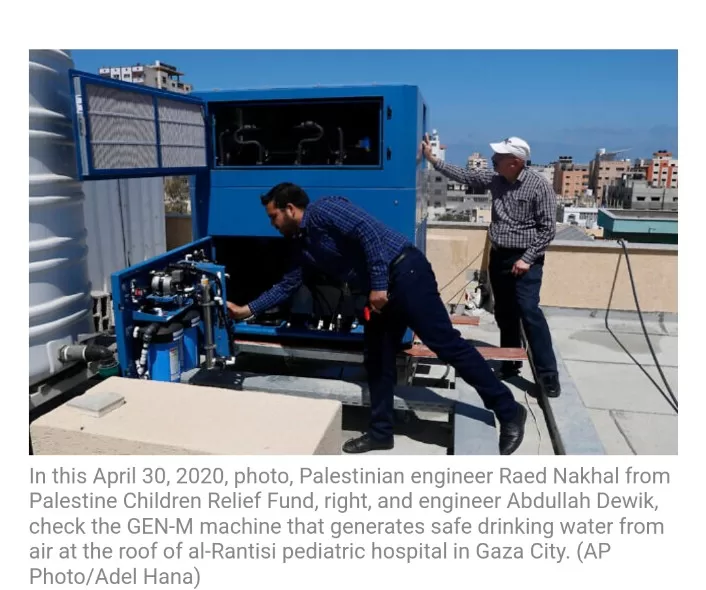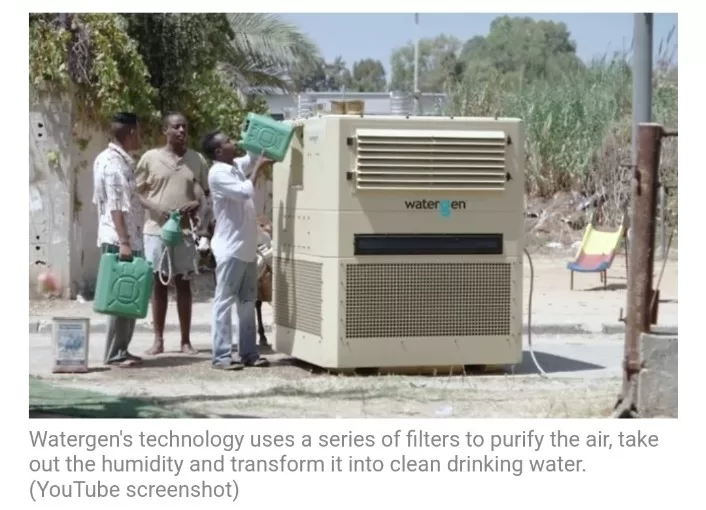In a remarkable initiative, three innovative Watergen machines, devised in Israel, persist in supplying clean drinking water to a substantial number of Gazans, even amidst the current Israel-Hamas conflict. Installed in strategic locations such as Abasan Al Kabira, Abasan Al Jedida, and the Nasser Medical Center in Khan Younis, these solar-run devices employ cutting-edge technology, utilizing filters to purify air. Through a meticulous process of extracting humidity from chilled air, these machines produce up to 6,000 liters per day, catering to the essential water needs of approximately 2,000 individuals.

The Arava Institute for Environmental Studies, based in southern Israel, played a pivotal role in deploying these life-sustaining devices. Partnering with Damour for Community Development in Palestine, the institute ensures the machines’ operational efficiency in both Gaza and the West Bank. Despite the ongoing intensity of conflict, reports indicate that the three machines in southern Gaza continue to function, providing a critical source of clean drinking water in communities facing water scarcity.
The innovative approach extends to the machines’ sustainability, as they are equipped with solar panels, ensuring their functionality without dependence on electricity. Financed by billionaire Michael Mirilashvili, who subsidized half the cost of each machine, and supported by the Friends of the Arava Institute, which raised additional funds and facilitated the acquisition of solar panels, this initiative exemplifies a collaborative effort to address a pressing humanitarian need.
While the fate of four Watergen machines in northern Gaza remains uncertain due to the intensity of the conflict, the success of those in the south underscores the resilience and impact of technology-driven solutions in times of crisis. The Arava Institute, renowned for fostering cross-border cooperation in environmental research, has demonstrated the tangible benefits of such collaborations, particularly when addressing critical issues like water scarcity in conflict zones.
Gaza’s overburdened aquifer, tainted by saltwater intrusion and pollutants, has long posed challenges to the region’s water supply. With desalination machines often reliant on scarce fuel and many shut down, and Israel reducing water supplies, Watergen’s solar-powered devices emerge as a beacon of hope, providing a lifeline to communities grappling with the dual challenges of conflict and water scarcity.




